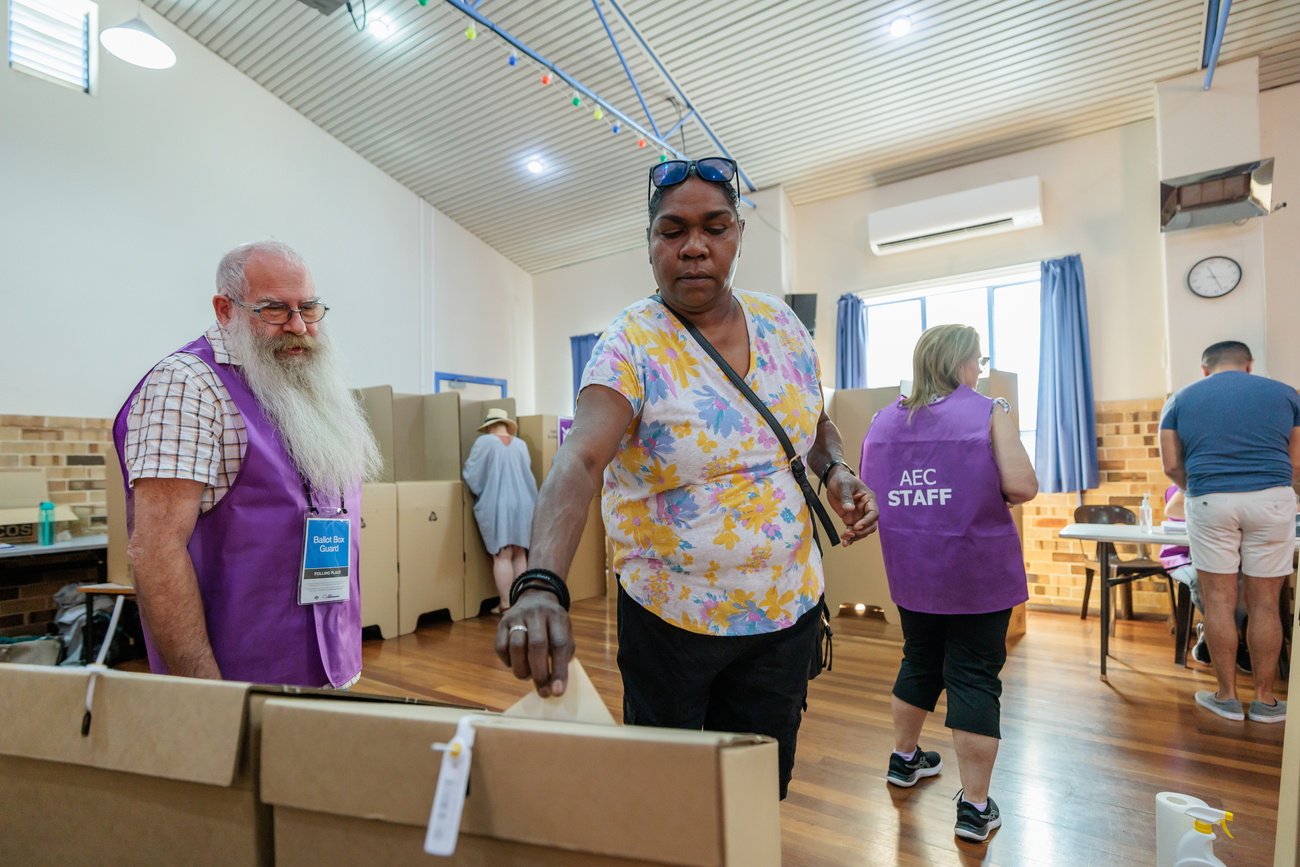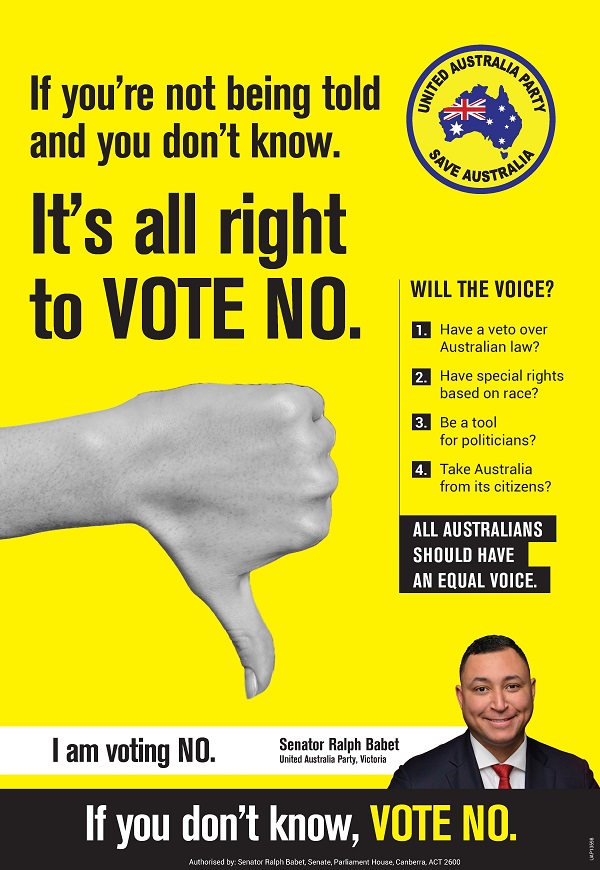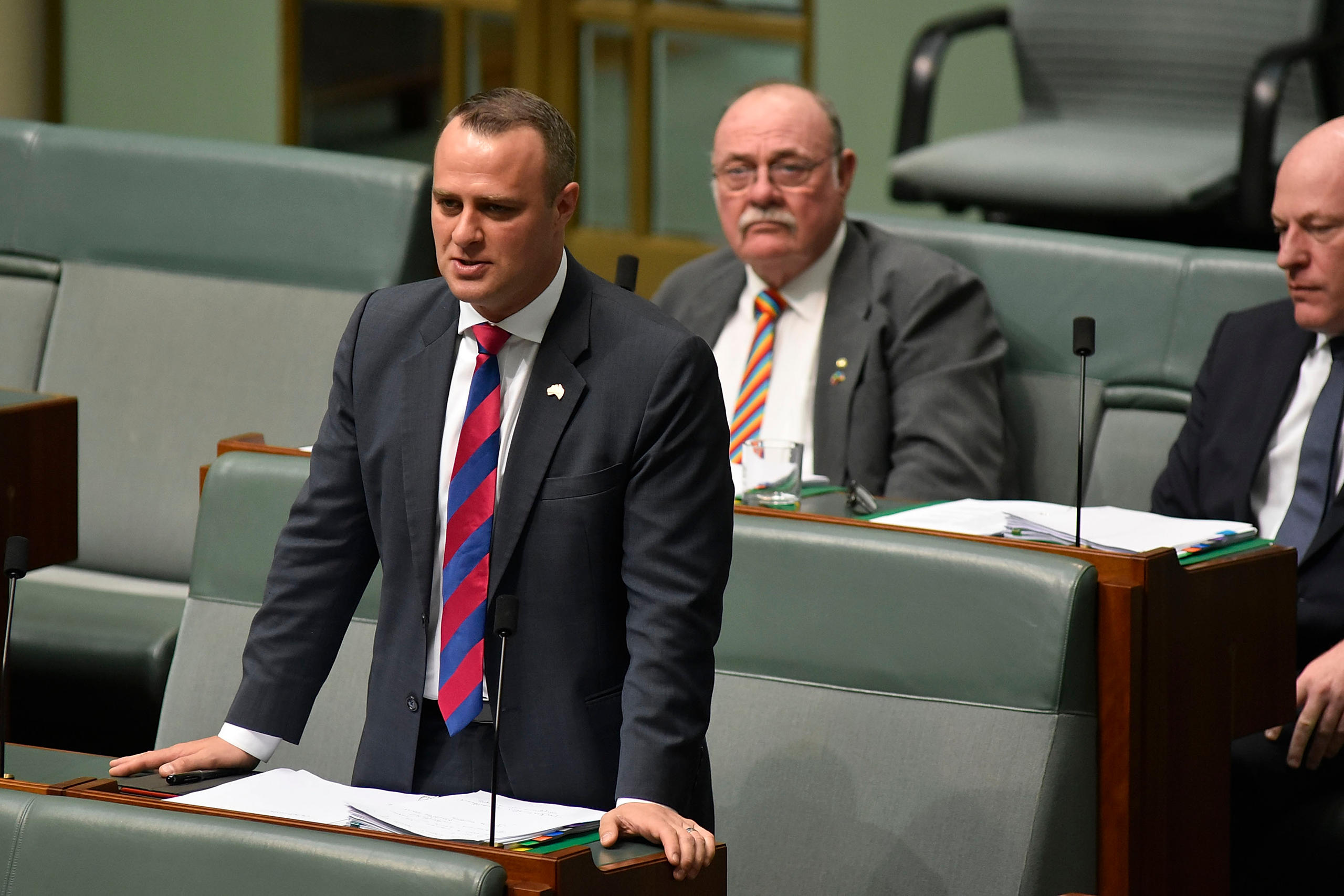
‘A defeat not only for Aboriginal people, but also for democracy in Australia’

Australian voters have rejected a constitutional amendment that would have given the Aboriginal population more say. Francesco Veri, a Swiss political scientist working in Canberra, says the reasons for this include deficits of direct democracy.
For Veri, the weekend’s referendum result “comes as anything but a surprise”. “I’m more surprised by the actions of the incumbent prime minister, Anthony Albanese, who must have known how difficult such referendums are in Australia,” he tells SWI swissinfo.ch.
On Saturday almost 18 million Australians voted in a referendum on a constitutional amendment that would have established an indigenous consultative body to the Australian parliament. The bill was defeated by a clear margin of 60%, with all six states voting against it.
The proposal started with the so-called Uluru Declaration, a petition by indigenous groups in 2017 demanding more influence. At the time, the Liberal-Conservative government rejected it as too radical, but after a change of government, Labor Prime Minister Anthony Albanese put it on the agenda.
Loaded issue
The political involvement of the indigenous peoples, who have inhabited the continent for more than 60,000 years, is historically burdened. Unlike neighbouring New Zealand, for example, Australia did not conclude a treaty with the Aboriginal population when it founded the modern federal state. After the arrival of the first white settlers in 1788, they remained without any rights for a long time and were recognised as citizens only in 1967.
Veri, who works for the Aarau Centre for Democracy and for the Centre for Deliberative Democracy and Global Governance at the University of Canberra, the Australian capital, sees reasons for the defeat at the ballot box in the democratic system.
The fathers of the constitution at the end of the 19th century drew inspiration from Switzerland. In Switzerland, as in Australia, a constitutional amendment requires a majority of the people and the cantons (in Australia “states”).

But there are also considerable differences, with the result that the success rate of government bills in Australian referendums differs markedly from that in the direct-democratic model state of Switzerland. While one in five bills is passed in Australia, almost three-quarters clear this hurdle in Switzerland.
Shortcomings of Australian democracy
“Since the Second World War no government in Australia has succeeded in passing a constitutional amendment against the will of the opposition in over 30 referendums,” Veri says.
The current referendum confirms three fundamental deficits of Australian democracy, already evident in the failed referendum on the introduction of the republic in 1999. They concern the electoral system, federalism and compulsory voting.
“In the Australian parliament, which is elected by majority vote, it is almost impossible to find viable solutions that can stand up in a popular vote,” Veri points out. In contrast, in Switzerland, the four largest parties in parliament (with close to 80% of the seats) are also represented in government, allowing the federal constitution to move with the times. Thus, in the last 175 years, the people and the cantons in Switzerland have been persuaded in 173 cases for amendments and on two occasions in 1874 and 1999 for a total revision.
Veri identifies a second hurdle for successful constitutional projects in Australian federalism, “which has postcolonial features”. Only six territories are recognised as full federal states. The part of the country with the largest proportion of indigenous people – the Northern Territory – is not counted as a state in a referendum. Neither is the Australia Capital Territory, with its capital Canberra, where on Saturday more than 60% voted in favour of a voice for indigenous people.
Veri sees the third major challenge in Australia’s compulsory voting system. “Many Australians see a referendum as an unnecessary burden rather than an opportunity to have a say. In addition, the compulsory vote does not contribute to better informed citizens, but to an advantage for the status quo, as poorly informed voters have to vote,” he says.

In the run-up to the vote, this manifested itself in a campaign by opponents under the slogan “If you don’t know, vote no”. In addition, much misinformation circulated about a possible future veto role for indigenous people in Australian politics in the event of a yes vote.
According to Francesco Veri, the failed vote on October 14 “is not only a defeat for Aboriginal people in Australia, but also a defeat for democracy in the country”.
Any future referendum can have a chance of success only if it comes from a conservative government, he says. To this end, Veri recommends reforms of federalism and voting rights – again modelled on Switzerland.
Disclaimer: the author of this article is on the Australian National University’s International Advisory Panel on ReferendumsExternal link, along with Francesco Veri.
Edited by Marc Leutenegger. Translated from German by Thomas Stephens

More
A piece of Swiss democracy down under

In compliance with the JTI standards
More: SWI swissinfo.ch certified by the Journalism Trust Initiative


























You can find an overview of ongoing debates with our journalists here . Please join us!
If you want to start a conversation about a topic raised in this article or want to report factual errors, email us at english@swissinfo.ch.